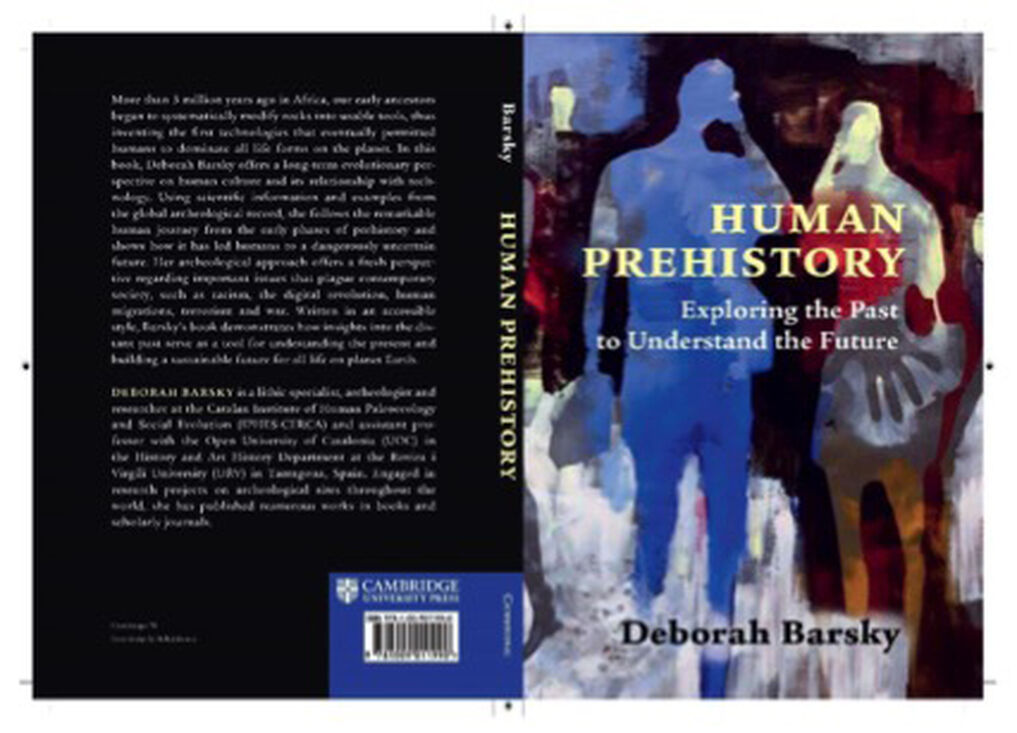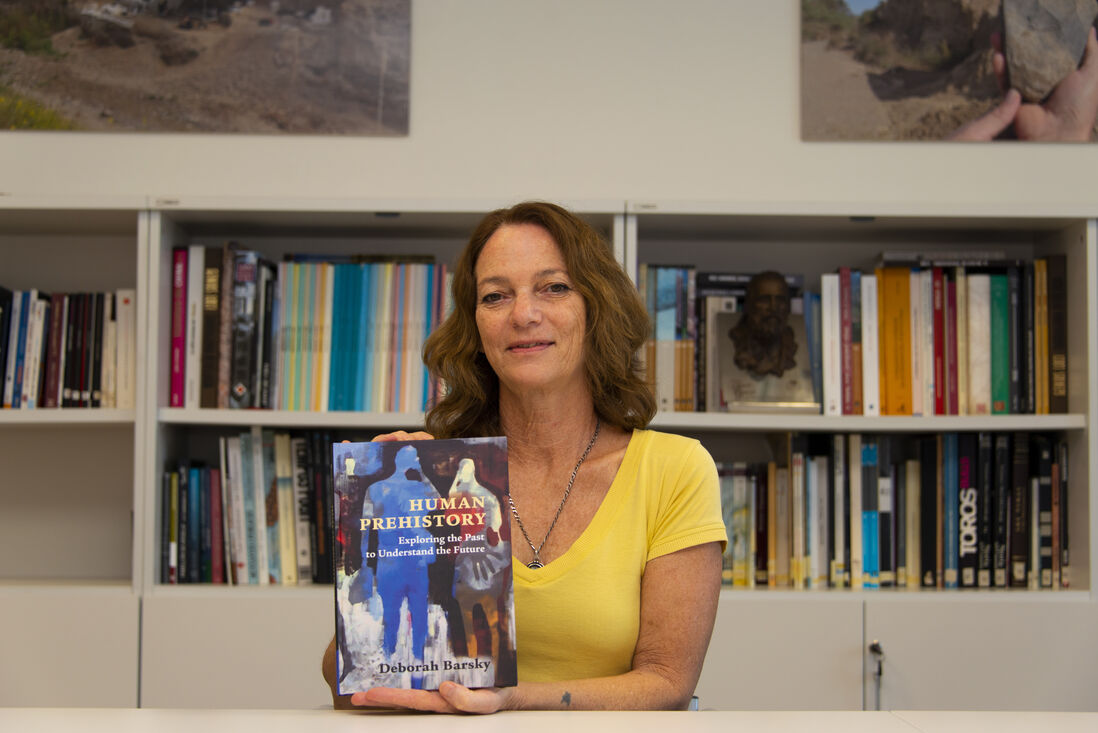A new book analyzes the significance of Prehistory for understanding the human condition in the modern globalized world
Human Prehistory. Exploring the Past to Understand the Future (Cambridge University Press) is the title of the new book by the archeologist Deborah Barsky, researcher at the IPHES-CERCA and assistant Professor of the UOC and the URV.
In this book, Deborah Barsky offers an overview of human prehistory, based on the idea that understanding the distant past can bring us new perspectives in relation to the current challenges faced by our species, and proposes how this knowledge can be essential to building a more sustainable future for all life on planet Earth. From this point of view, the author tells the fascinating story of human evolution through updated examples from the archeological record and explains the different phases of cultural evolution.
This book provides a unique opportunity to learn about many aspects of multidisciplinary research applied to Prehistory and explains in an accessible way some of the scientific concepts central to understanding the evolutionary pathway followed by our species through time. The researcher, specialist in the study of lithic stone tools, develops a discourse focused on technology as the central factor that defines the genus Homo and that distinguishes us from all other life forms.
The book’s 288 pages cover a large chronological range, from the first bipedal hominins up to the Metal Ages and beyond, employing concepts developed in Prehistoric Archeology to tackle a number of questions that are central to defining, not only what it means to be human, but also to gain a better understanding of our relationships with one another and with other animals in a globalized world.
As our species enters into the Anthropocene Epoch, Deborah Barsky shows how the long-term vision provided by Prehistoric research is key to truly understand how we came to be who we are. By looking to the past for answers to the many issues plaguing modern society, interesting trends become clearly visible regarding themes such as: climate change, overexploitation of plant and animal resources, pollution, racism, institutionalized religion, the digital revolution, human migrations, terrorism, and war.
This book establishes Prehistory as a central pillar to link the past to the present, and in doing so, to step into a more sustainable future.
Reference:
Barsky, D. 2022. Human Prehistory. Exploring the Past to Understand the Future. Cambridge University Press. 288 p.
You have more information about this book here


